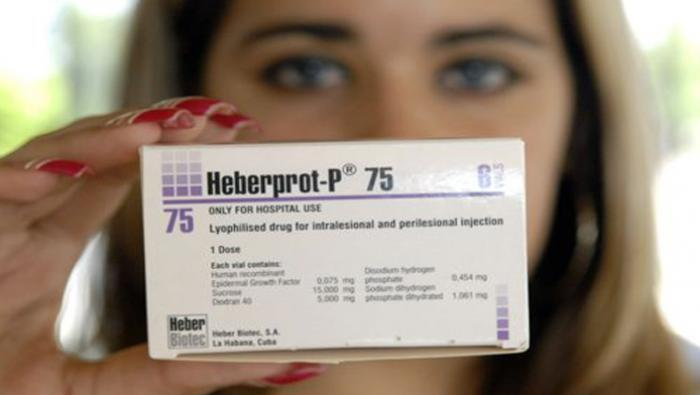
By María Josefina Arce
Heberprot-P continues to demonstrate its efficacy in the treatment of diabetic foot ulcers, improving the quality of life of people suffering from this ailment not only in Cuba but also in other nations of the world.
In Venezuela, the application of this Cuban medicine is an essential part of the Good Living Program for diabetics, which is part of the Medical Mission of Cuba in that South American nation.
Launched in 2008, this initiative has made it possible to treat more than 247,000 Venezuelans and, thanks to Heberprot-P, around 135,000 patients have been saved from the risk of amputation.
As a result of the tireless work of the scientists of the Center for Genetic Engineering and Biotechnology of Cuba, this drug has greatly impacted the Venezuelan population. It has made it possible to keep those suffering from the disease active, generating fewer expenses for the health system.
Quoted by the Granma newspaper, the Center's general director, Martha Ayala, pointed out that before the application of Heberprot-P began, the amputation rate in that country was 10%; today, where it is used, it has dropped to less than 3%.
Heberprot-P is a novel, unique, and the first of its kind in the world, which manages to prevent a diabetic patient from ending up with an amputation, despite having ulcers in an advanced stage.
It is currently used in more than twenty countries, including Kuwait, Syria, Uruguay, Algeria, China, Vietnam, and Saint Lucia.
In Cuba, it is included in the basic list of medicines, and since 2013 its widespread use in the country has been the norm. According to health authorities, more than 450 health units in the national territory, belonging to primary, secondary, and tertiary care, apply Heberprot-P therapy to their patients, which has benefited more than 90,000 Cubans.
Specialized personnel, specifically trained in the use of this medicine, are responsible for applying it to people of any age, sex, and race, regardless of the type of diabetes.
Heberprot-P is an effective answer to this health problem. As part of its commitment to help provide high standards of health and quality of life to patients with diabetes, the Caribbean state has made this medicine available to citizens of various nationalities.
It is the result of Cuba's development in the field of biotechnology, whose products contribute to the diagnosis, prevention, and treatment of many diseases and whose remarkable results also have an impact on other branches such as agriculture and the environment.

